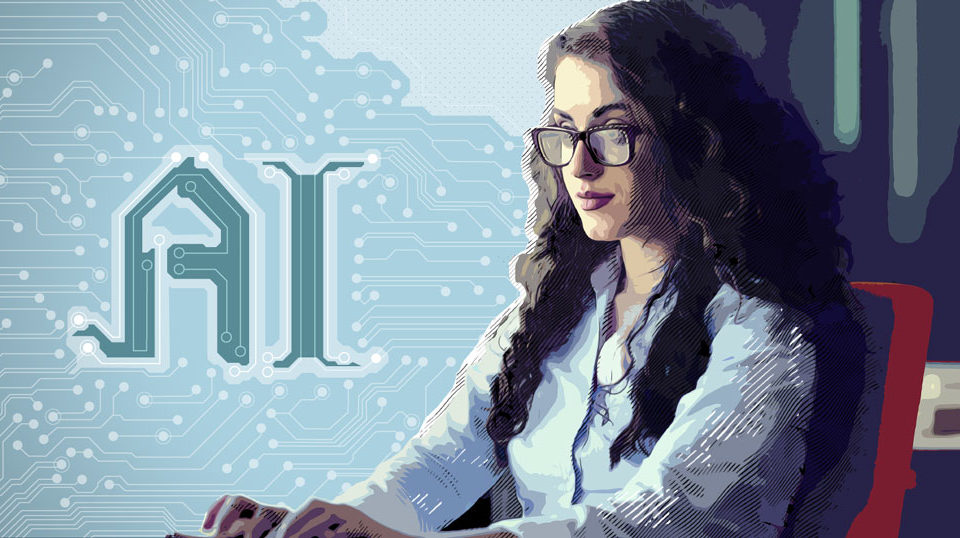By Samer Abu Ltaif, President, Microsoft Middle East & Africa
One of the most encouraging predictions for 2019 and beyond is that the field of artificial intelligence will create more jobs than it will eliminate. Specifically, the AI sector will create 133 million new jobs globally over the next three years. That is a net gain of 58 million jobs over the 75 million predicted to be displaced by automation.
But what will those jobs look like? In the Middle East and North Africa, the picture is more complex and opportunity-rich than the simple idea of robots replacing people. New digital opportunities are emerging in traditional areas like oil and gas, aviation, transportation and healthcare. We must also consider the rapid burst of urbanization occurring all over the globe, particularly in Africa, where the number of people moving to cities doubled over the past 15 years and will double again over the next 15.
The UAE’s energy-efficiency work and its Green Growth Strategy predicts more than 200,000 new jobs by 2030. Digital access will give women and other underemployed groups more opportunities, potentially leading to more than 1 million new jobs across Egypt and Turkey and a US$32bn boost to GDP in Saudi Arabia. In addition, disruptions such as climate change, data sharing, cloud technology, crowdsourcing, robotics and 3D printing will continue to evolve the nature of work and the need for talent in the MENA region.
Understanding our growing talent base
When we consider the volume of jobs being created and the demographic trends that suggest there will be enough workers to fill those jobs, we must ask ourselves: are the new workers going to have the right skills to step into the roles that have been created for them? Around 6% of the world’s population lives in MENA. Over the next 30 years, more than half of global population growth will come from Africa. In the Middle East, 40% of people are under 25 years of age. And the number of unemployed young people in MENA is almost 30%.
Why then do employers struggle to find people with the right skillsets to fill open positions? What are employers looking for and what assets do MENA’s young people lack?
A World Economic Forum report on MENA millennials paints a picture of an an engaged, hardworking, entrepreneurial group, with a large appetite for digital content, who give their brand loyalty only after doing their homework. These are the leaders of tomorrow, and we must ensure they have the proper tools for the work ahead. While technology skills will be a must for many positions, others will require “soft”, uniquely human skills, like communication, problem-solving and collaboration. In the future, possession of these soft skills will be the difference between who gets hired and who doesn’t.
Learning is for life
There is a growing understanding that in order to reach our AI and digital potential – and reap the benefits of the innovation that will follow – we need to adopt the practice of lifelong learning. We need people who can manage complexity. We need people with vision to lead us. We need a workforce that can continuously adapt to a changing marketplace.
How are our education systems adapting? A college degree dramatically increases a person’s ability to adapt. But being future-ready also depends on the areas a student chooses to study. For the digital future, students will need basic math and literacy, STEM and computer science, technology know-how, plus soft skills, motivation and flexibility. We need more long-term investments that seek to address the underlying causes of unemployment and the shortfalls in education.
How are companies preparing for the future? In the past, in low-profit years, many companies reduced the amount of money they invested in training, but today the data points to the need for a different attitude. The definition of training has also become much broader, with room for more development of creative and collaborative skills. Initiatives like Microsoft Cloud Society and OpenHack are designed to continue growing the skills of emerging experts in the region. Microsoft is also leveraging long-term partnerships in Egypt for the upskilling of government trainers and teachers, to bring better education and increase employment opportunities for underserved young people.
What are governments doing to proactively support the education and private sectors with coordinated upskilling initiatives? Programs like the UAE’s Governance of Artificial Intelligence course are aimed at upskilling government leaders in the area of AI. According to Accenture Consulting, if leverage were applied in South Africa to double the country’s current skill-building efforts, it could significantly reduce the number of people facing unemployment if their jobs were automated.
I remain optimistic. My experience tells me that humans are masters of reinvention. As we head into 2019, what are the personal stories of human creativity and career reinvention that inspire you? How can we better combine forces across government, the private sector and education to ensure that our large base of talent is prepared?





